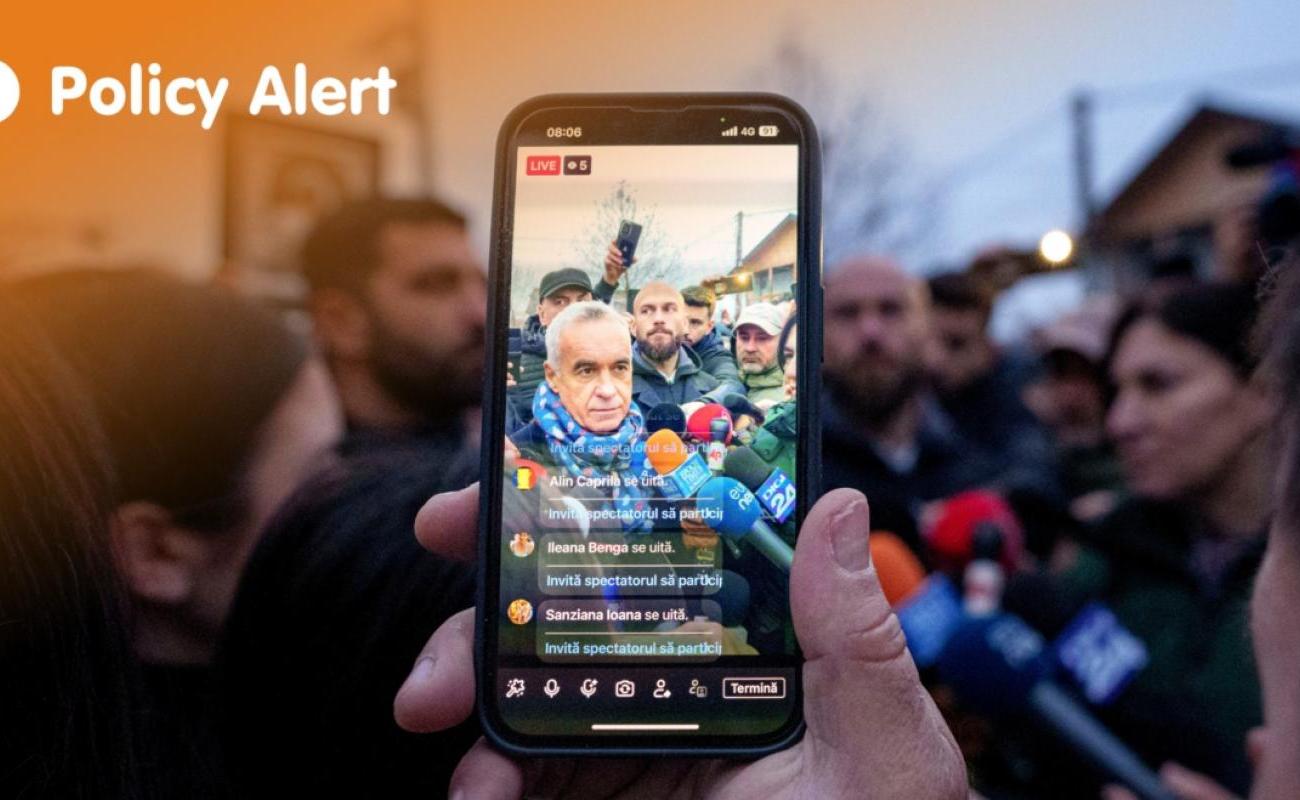Romania’s election crisis: A stark warning for NATO nations on Russian meddling

Romanian institutions could have better protected the elections had they not underestimated the rise of the far right and tolerated radical and nationalist elements in their ranks.
Romania’s Constitutional Court annulled the country’s presidential election on the eve of the second round, citing electoral process compromise due to foreign interference, based on declassified documents.
Earlier, the National Security Council pointed at Russia as a hostile state behind a massive TikTok campaign meant to propel to power Călin Georgescu, a pro-Russian conspiracy theorist whose ideology is rooted in Romania’s interwar far-right movement. Shortly after the court’s decision, a string of arrests targeted key figures in Georgescu’s alleged illegal campaign.
Faced with limited options, the Romanian government chose the least undemocratic way to mitigate the damage. The Constitutional Court, seen as highly politicised as judges are appointed by the ruling government, bought the authorities time to organise a rerun in the spring of 2025.
Romania is the first European country to cancel an election over alleged Russian interference, although similar allegations have been levied in the past, such as in Moldova. The Romanian case shows the extent to which even NATO countries are vulnerable to Russian meddling, and how much local institutions underestimated the social discontent that propelled Georgescu’s rise to prominence.
In this moment of uncertainty and heightened social division, it is crucial for the Romanian government to restore public confidence in the state’s institutions and the electoral process, while boosting resilience to external threats. Without these measures, the 2025 rerun of the presidential elections risks replicating the challenges faced in 2024.
Solution
The first order of business for the authorities is to name and prosecute domestic perpetrators of this hybrid attack, while also proving their connections to Russia.
After that, politicians must focus on reforming political parties and improving their response to current threats. Both parties and institutions could have better protected the elections had they not underestimated the rise of the far right and tolerated radical and nationalist elements in the country, including within their own ranks. A thorough purge is needed to ensure resilience.
In addition, Romania must adapt its laws to effectively counter foreign information manipulation and interference, which will only increase as Russia seeks to undercut Western influence in the region. Likewise, the European Commission needs to step up its efforts to hold social media companies accountable for their role in the dissemination of mis- and disinformation, and regulate giants with potential state influence such as TikTok. Romania’s experience offers a cautionary tale of the future of elections and influence operations more widely.
Context
Georgescu, an economist with a career rooted in the state system, was virtually unknown to the public until he shot to fame within a few weeks during the first round of the presidential race, securing 23% of the vote and finishing in first place. His opponent, liberal small-town mayor Elena Lasconi, was the only pro-European and pro-democratic option in the race but was widely viewed as underqualified for the job.
Georgescu refused to attend debates, interviews, and to disclose his funding sources. On online posts and videos, he outlined his intention to create a self-sufficient Romanian economy, nationalise foreign companies, stop aid to Ukraine, get rid of the US missile defence shield hosted in Romania, and expressed sympathy for Russian president Vladimir Putin. He is a supporter of neo-legionnaire groups that trace their roots to the Iron Guard, the criminal, religious fascistic movement of the 1930s.
Despite Romania’s historical anti-Russian sentiment, part of the population has grown disillusioned with both the quality of political representation and access to public goods. Widening inequality and lack of social justice have made extremist ideas and hopes for radical change more appealing. The Romanian diaspora, feeling estranged and discriminated against in their host countries, is particularly vulnerable to these ideas.
Romania’s strategic Euro-Atlantic orientation is driven by elites and lies on a fragile popular consensus, with widespread resentment towards both national and Western politicians. State institutions have downplayed the built-up anger over years of bad governance and corruption, as well as the threat that a growing far-right movement poses to national security.
The European Council on Foreign Relations does not take collective positions. ECFR publications only represent the views of their individual authors.
